|
As a practicing Catholic and twenty-something wife and mother, I often feel like I need to prove how incredible motherhood is to society. Mainstream culture seems to tell me that I should have delayed marriage and children, traveled more, and found out who I really am through a wide variety of experiences, adventures, and bottomless brunches. Instead, here I am married at 23, a mother at 24, somewhat self-conscious and alarmed at how quickly my life moved into domesticity, but proud of my little family. If I’m being honest, I feel a little defensive of the choices I have made. I don’t want someone who doesn’t share my values to assume that I am a demure, submissive woman who has closed the door on her “life” because I got married and had kids earlier than usual. As a result, I find myself doing my best to show society how trendy and cool I am, how awesome motherhood is, how easy it is to balance family life with my professional career, and how my whole life is just one moment of beauty after the next.
Then there’s reality. Many days, my life feels like a scramble to balance marriage, motherhood, and school. I am constantly running out the door with coffee breath and a baby on my hip, a diaper bag slung over my right shoulder, and a work bag slung over the left. All the fantasies I had while pregnant about my little future family sitting around the breakfast table, clean, well-dressed, eating eggs on white plates before calmly leaving the house with smiles on our faces have crashed down with the bowl of scrambled eggs my daughter flung off the table. These crazy mornings summarize one half of motherhood for me. It’s exhausting, frustrating, messy, and constantly changing. But then there’s the other half of motherhood. Even though I recognize I’m not the trendy Catholic mother I had in mind, I am a happy Catholic mother. There’s a joy in this life that doesn’t show up on social media, an intimacy and peace that I wouldn’t trade for another year as an unencumbered single twenty-something. Sometimes the uniqueness and beauty of my little family truly fills me with wonder for the gifts I’ve been given. The tension between what I have lost and gained by my choices has been brought to the surface by my family life. Motherhood has drawn out of me what Kierkegaard refers to as the “inherent contradiction of existence.” Although he’s talking about the impossible combination of body and soul, temporality and eternity that marks the human condition, I am often struck by how selfless and selfish I can feel in the same moment when it comes to my family. Perhaps that incongruity is part of the point. Motherhood is simultaneously so ordinary and so miraculous. There’s significance in the insignificance. Christ models this by being born to a totally insignificant woman in totally insignificant circumstances, and yet saving humanity from itself. In my own life, unlike Christ and the Blessed Mother, I’m likely to be forgotten after I die. However, my love for my daughter feels so much bigger and lasting than any recognition I could ever earn. It wouldn’t matter if no one else ever knew about the love I have for her. This love is an immaterial reality, one that is totally overwhelming in its own way. It is this love that brings significance to my life. I imagine this has to be a little bit of what God’s love is like for us. It doesn’t matter how insignificant we are because we matter to HIM. His love for us—for you—always has been, always is, and always will be. Like the love a mother has for her child despite the scrambled eggs thrown on the wall, God’s love always remains. It’s unearned, uncontrolled, and immeasurable. A recognition of this love is actually what trendy, Catholic motherhood means to me. It’s a recognition that motherhood is an opportunity to love and be loved as Christ loves us. It doesn’t have to be picture perfect; it just has to point toward the virgin’s “Yes” that led to the creation of the Word. As a mother, I am called to be open to God’s work within me, to allow Him to love through me, and to cooperate with Him in order to love more perfectly. This overabundant, explosive love is the most persuasive thing in the world. It is this witness that shows our mainstream culture a different narrative, one that may not be perfect, but is life-giving nonetheless. Question for Reflection: How can you grow in loving others with God’s love? For more resources on Marriage and Family, please click here.
0 Comments
If you could only take three things on a desert island, what would you bring? A common question at parties, dates, and job interviews, it’s not so different from what we might ask ourselves during the season of Lent. Lent, as our Catechism says, is “a span of forty days when the Church unites herself each year to the mystery of Jesus in the desert.” Just as the “desert island” question invites us to stop and consider what we really need and want in life, Lent invites us to consider our truest desires, what matters most, when it comes to uniting ourselves to Christ Jesus. To help us answer this question during Lent, our Catholic tradition gives us three spiritual keys, known as “penitential practices,” namely, Prayer, Fasting, and Almsgiving. Prayer Before deciding what to “give up” during Lent, first “pick up” a new way to pray. Be specific: pick a time, place, and form of prayer. Don’t commit to more than you can do, but don’t be afraid to stretch yourself some. Lent primarily focuses on the practice of penitential prayer, humbly acknowledging our sins with sorrow and contrition, and turning our hearts back to God’s forgiveness and mercy. One example found at most parishes is the Stations of the Cross, usually hosted every Friday during Lent as a way of reflecting on Christ’s Passion and death. Other daily spiritual exercises might involve reciting the Seven Penitential Psalms, or making a heartfelt Examination of Conscience and Act of Contrition. Don’t forget Lent is a powerful time to receive the Sacrament of Penance (also called Reconciliation, or Confession). Penitential prayer isn’t meant to leave us discouraged, but should increase our desire to love and serve God. The Psalmist sings, “As the deer longs for streams of water, so my soul longs for you, O God. My soul thirsts for God, the living God” (Psalm 42:2-3). Lent is a kind of “spiritual desert” that highlights our thirst for God, which may lead us to experience what the saints of our Church call “dryness in prayer,” times when we lack feelings of comfort and consolation. Rather than a sign that God isn’t listening, as Mother Angelica and others have described, dryness in prayer can be a gift and invitation to find our deeper satisfaction in God alone. In the words of Msgr. Charles Pope, dry and difficult prayer teaches us to seek not the consolation of God but the God of consolation. Fasting Fasting is the spiritual practice of voluntarily abstaining from food or some other bodily need or pleasure (now we can talk of “giving something up”). Fasting is rooted in our Church’s scripture and tradition, especially in imitation of Jesus who fasted for forty days in the desert (Matthew 4:2). While the Church only asks members to fast from food on occasion, I’m convinced fasting is more relevant than ever as we live in constant temptation of becoming more gratified while less grateful, more satiated while less satisfied. Fasting can be a practice of slowing down. This can mean we intentionally consume and do less, thus allowing God to speak to our souls with less interruptions from the myriad distractions and lesser goods that demand our time and attention. Fasting works to curb our appetites—for food and drink, yes—but also excess information (news and status updates), noise and visual stimulation (TV, video games), so as to redirect our thoughts and desires for God and restore relationships with those near us. Spend some time in prayer considering what things or activities God is calling you to fast from. Almsgiving When asked, “How much money is enough” Industrialist and oil magnate John D. Rockefeller famously replied, “Just a little bit more.” The practice of almsgiving, on the other hand, can actually be freeing—showing that we can be happy with a little bit less. John the Baptist instructed his followers, “Whoever has two tunics should share with the person who has none. And whoever has food should do likewise” (Luke 3:11), and Jesus warned his disciples of putting stock in material possessions (Luke 18:18-30). Almsgiving turns the spiritual fruit we inwardly gain through prayer and fasting outward into material fruit shared with the poor and those in need. One year, I chose one item a day I owned (article of clothing, book, can of food, etc.) to set aside to give to the poor through my local church’s St. Vincent de Paul Society or food pantry. I was shocked (and a little embarrassed) by how much I owned but never used. The point isn’t spring-cleaning or making room in the closet for new summer fashions, but to make room in our heart for the poor and to de-clutter the way that leads to the Kingdom of God. This Lent, I invite you to pray about incorporating these pillars into your forty-day spiritual journey in the desert. Sometimes it’s easy to feel a little bit lost in Ordinary Time. We know that during Advent we are preparing our hearts and homes to celebrate the joys of Christmas. We light the candles of the Advent wreath, we sing Advent hymns, send Christmas cards, and prepare our Christmas gifts. During Lent, we fast, pray, and focus on giving what we have whether that be time, talent, or alms. We usually know that it is a time to repent and focus on daily mortifications that will draw us into a closer relationship with our Triune God and lead us to a beautiful celebration of the mysteries of our faith. So, what happens in the quiet stillness of Ordinary Time? I have recently come to be both terrified and in awe of this passage of time. Reflecting on the purpose and importance of this liturgical period, I am reminded of the story of Simon, James, and John in Luke 5: 1 - 11. The skill and trade of fishing is a perfect analogy for us. Fishing requires knowledge, skill, practice, patience, and, possibly above all, trusted intuition. Let us imagine this scenario as it unfolds. Simon, James, and John have been working throughout the night. They are no doubt exhausted and deflated when Jesus asks them to go out yet again. How often do we feel like this? How often do we feel God nudging us to try one more time, to keep going, to persevere? How do we respond to that? Do we quietly take our boat back out onto the water? Or do we rail against his request? In Luke 5: 4, Jesus does not simply ask that the boats be taken back out. He specifically asks Simon to “put out into deep water…” Where are the deep waters in our life? Where are the areas that Jesus is calling us that we cannot touch or perhaps not even see the bottom? The interchange that follows is striking. After Jesus asks Simon to lower his net, Simon replies that they have worked throughout the night and have caught nothing, “but at your command I will lower the nets.” Are we trusting Jesus enough in our lives to lower our nets of prayer, spiritual, or physical action when we have been toiling and have failed to see the fruits of our labor? After the resurrection, Jesus again meets His disciples in this way in John 21. After an uneventful day of fishing in the sea of Tiberias, Jesus instructs the disciples to cast their nets back into the water. They did not even recognize him at first but did as He instructed. The catch was so full that they struggled to pull it in. In both instances, Jesus requests His disciples to take action just one more time before giving up. Ordinary Time is our time of action and risk taking. This is our chance to act on our belief in God, the belief that we profess and strive to deepen during Advent and Lent. Are we praying and living as if we truly believe that the Triune God is all powerful and miraculous? Are we using the term, “Thy will be done” as a contrite spiritual, physical, mental, and emotional submission to His divine will and purpose or are we praying those words in the hopes that He will take action so that we can remain in our comfort zone? What open sea do we need to cast our net into? What prayer have we given up on because we’ve forgotten that God exists outside of time? This is when we put into action all that we’ve seen and heard. He is speaking our name, inviting us to trust Him, to “put out into deep water” and cast our net. “When Jesus touches a young person’s heart, he or she becomes capable of truly great things.” – Pope Francis The quote above from Pope Francis’s introductory remarks to the pilgrims of World Youth Day 2016 in Krakow, Poland, spoke to over 2 million young adults traveling around the globe to worship together. Pope Francis’ words were heard by people already impacted by the message of Christ, many of whom, I would guess were informed of and formed by the love of God thanks to their Catholic educations. Today we celebrate in the United States the feast of St. John Neumann, Bishop of Philadelphia and founder of the first diocesan school system in the United States. Per the request of many families in his diocese, Bishop Neumann established a diocesan school system so that the children of the diocese could receive Catholic instruction and grow in their faith in a classroom setting. When the school system was established, the diocese of Philadelphia was strapped for resources, so Bishop Neumann invited many different religious communities to the fledgling schools to tend to the rapidly growing immigrant population in the city. His efforts both established the school system and increased the education of the city’s Catholic youth by more than twenty-fold. His diocesan system later served as the model for parochial Catholic education for much of the United States. St. John Neumann understood in the 19th Century - much like Pope Francis does now -that learning about the love of Christ through educational experiences can be an important part of our evangelical mission in this world. If we are all called to share in the evangelizing mission of the Gospel, then we must consider in what ways those gifts and talents can be utilized for the purpose of that mission. For St. John Neumann, Catholic education provided the youth a designated place to come and learn about the Lord and how to live as a Catholic alongside of their other studies. For many youth, their formal catechesis ends with sacramental preparation. Families often don’t understand the importance of continual catechesis throughout a person’s life. So, what can we do to help the youth and young adults in our parishes and communities become more engaged in the faith outside of Catholic schools? How can we support education in non-traditional ways? The answer is particular to your individual situation and universal to the faith we all believe in. Pope Francis has some advice and good examples of experiences that I cannot better summarize myself: “Knowing your enthusiasm for mission, I repeat: mercy always has a youthful face! Because a merciful heart is motivated to move beyond its comfort zone. A merciful heart can go out and meet others; it is ready to embrace everyone. A merciful heart can be a place of refuge for those who are without a home or have lost their home; it can build a home and a family for those forced to emigrate; it knows the meaning of tenderness and compassion. A merciful heart can share its bread with the hungry and welcome refugees and migrants. To say the word ‘mercy’ along with you is to speak of opportunity, future, commitment, trust, openness, hospitality, compassion and dreams.” Is your parish environment one of mercy? Does it foster openness and compassion? Is it willing to embrace people where they are with mercy and hospitality? Is your parish one that is moving outside of its parish borders and going to where it’s a bit uncomfortable and meeting people where they are both physically and spiritually? This is part of the continuing education that we as Catholics must undertake if we are to carry the mission of God to the world. We must constantly learn and relearn the message of Christ as espoused in the Gospels and find ways to practice it in our daily lives. We must learn to love and serve God and to love and serve our neighbor, not just from behind a desk, but in every step we take.
9/13/2016 Communicating Like Chrysostom: Growing Your Skills in Speaking for the New EvangelizationRead NowSeptember 13th is the feast day of St. John Chrysostom (c. 349-407), one of the most celebrated Fathers of the Early Church. Born in Antioch, John Chrysostom chose a simple life as desert monk, but was kidnapped and forcibly made the Archbishop of Constantinople, where he spent much of his life fighting against corruption— especially on behalf of the poor and widows. John earned the nickname Chrysostom—Greek for “golden-mouthed”—based on his reputation for eloquent speaking and skills in public preaching, which converted the hearts of many listeners. John Chrysostom exemplifies the value of good communication as an element of effective evangelization. Whether you’re a ham or have speech anxiety like most, at some point or another, you might be called upon to speak publicly—especially if you work or volunteer in the church. Whether you are preparing to deliver a parish talk, a personal witness, or other public presentation, no matter the size, spending some effort crafting your communication skills can be a great benefit to sharing your faith. Know your Who, What, and Why St. Paul, a man who described his call “to preach the gospel, and not with the wisdom of human eloquence,” (1 Cor 1:17), nevertheless frequently found himself speaking in front of crowds as part of his mission as an Apostle and disciple of Christ. Paul speaks very differently to mature Christians and the pagans of Athens (Acts 17:22-34). The audience (“who”) shapes his main points and examples (“what”) and the purpose for speaking to them (“why). Prepare by creating an outline that clearly and succinctly states your “who, what, and why.” Write it down and refer back to it throughout the composition stage. A Little Humiliation Goes a Long Way In seminary homiletics courses, preachers-in-training are frequently subjected to the sometimes humiliating exercise of having their practice homilies recorded. They then watch the playback to evaluate their delivery. In some form or another, that can help anybody. It’s probably going to hurt … but you actually get used to it over time and can learn a great deal throughout this process. Practice in front of somebody. (If you’re too embarrassed at first, use your dog, cat, or an inanimate object.) Exercises like these are designed to help public speakers become more self-aware, not self-conscious. People Watch Pay close attention to your favorite speakers, teachers, or preachers and try to articulate precisely what makes them engaging and unique—not just their content, but things like timing, rhythm, their order of argument, when and when not to use humor, etc. Pope St. John Paul II and Archbishop Fulton J. Sheen were masters at this. Be Yourself As you reflect on how you speak, name gifts and qualities that others identify about your particular style. Develop those. Remember, we are not all called to be rhetoricians and orators, or even great speakers, but faithful communicators of the Gospel. Not all, St. Paul says, are even called to be preachers or teachers (cf. Ephesians 4:11). To advance his kingdom, God has entrusted each of us with a message and a mission and nevertheless promises to “equip the holy ones for the work of ministry, for building up the body of Christ” (Eph 4:12). St. John Chrysostom, Pray for us! One of the most exciting, profound, yet sometimes awkward and unnerving places of parish ministry involves welcoming new Catholics officially into the Church through what is called the Rite of Christian Initiation of Adults, or RCIA for short. Many parishes are now gearing up for the next season of RCIA, which generally runs from early Fall and concludes with the Easter Vigil (this year on April 15, 2017). Over the years, I’ve had the opportunity to serve and lead RCIA in a few parish settings and have been blessed to accompany some friends and family members through the process. But every year there are things I learn and need to be reminded of to facilitate a truly transformative time for the candidates and catechumens. Below, I’d like to offer some perspective, as well as a few pitfalls to avoid that have made a difference in the way the teams I’ve been a part of approach this important ministry. Speak their Language For those of us who grew up Catholic or actively learn and read about our faith, we become very familiar with the vocabulary and theology of the Church that is typically foreign and confusing to newcomers. Don’t assume people know what you are talking about, or what a word or acronym (even RCIA!) means. People are learning a new language of faith, which requires patience, clarity, and practice. Without patience and clarity, people feel alienated and lost, not impressed, and you risk having your faith come off as pretentious and antiquated, not living and effective. Teach Them to Pray Going off the last point, we should remember that prayer is the primary language of the faith. This is based in the ancient Catholic spiritual axiom, “Lex orandi, lex credendi.” The truth is, we assume people know how to pray, but prayer takes learning and practice, just like anything else. Prayer is necessary for living out the Catholic life beyond RCIA, but instead of just telling people to pray, we need to actively teach new Catholics how to pray by praying with them. Do some form of prayer together each week—the Rosary, Lectio Divina, a litany—to expose people to the richness of Catholic spiritual life. If we leave participants with anything, let it be the desire and ability to pray. Learn Their Story As passionate teachers of the faith, RCIA leaders often love to share their experience and favorite subjects about the Church and our faith. That’s important, but we often risk talking when we should simply be listening. Be mindful in giving the candidates and catechumens plenty of time to speak and share their story with one another, not just for a brief minute the first day, but also as part of an ongoing process that extends the whole course. Think Outside the Classroom Learning the content of the Catholic faith is essential, no doubt about it. But often our approach gives the impression that church teachings only live in the pages of textbooks. If all learning about the faith happens in the classroom, it has a tendency to stay there. Look for ways to make connections between Catholic beliefs and tradition and real action and practices. Learn about the corporal and spiritual works of mercy by scheduling time to go out as a team, do a few of them together, and then reflect on them. In Baltimore where I live and work, we are surrounded by some amazing Catholic historical and religious sites. We decided, “Why not incorporate that into our RCIA experience?” Instead of just reading about the saints, we planned field trips to the churches and homes of local saints. RCIA became a more memorable experience that expanded horizons and made people feel at home in their new faith family. Build a Strong Team Your most valuable asset is a dynamic and cooperative RCIA ministry team. I’ve heard of RCIA teams that actually actively disagree and challenge one another over church teachings in front of the class. Different personalities and gifts are important, but they should work in unity. Be mindful of what kind of personalities and gifts will resonate with the experience of people going through your program. Think Ahead New converts are frequently powerful and fresh witnesses to the joy of their faith and are often ready and excited to get involved. Before the RCIA process is over, start looking for opportunities to move new Catholics into the service opportunities and ministries of your parish. I recently came back from a summer vacation to England and Scotland. Whenever friends and family have asked about my favorite part of the trip, I always say the Scottish Highlands and English Lake District. The beauty of the tall mountains with peaks hidden in the clouds and covered in the brightest green foliage takes your breath away. Peering up at these magnificent stone crags with my head tilted back to face the sky, I couldn’t help but mutter a continuous, “Wow!” The first thought that entered my head was the lyric from the song “Shoulders” by the Christian band For King and Country: I look up to the mountains / Does my strength come from the mountains? / No, my strength comes from God / Who made heaven, and earth, and the mountains. The entirety of my trip, I saw God in simple things – a sunny day without rain, swans and ducks swimming in ponds, the architecture of a beautiful church, sheep and cows grazing in fields, fellow tourists greeting me with a funny story and smile. It took a plane ride across the Atlantic for me to become refreshed and remember to purposefully think about God’s presence in all things, no matter how ordinary the moment may be. After my trip, I thought about several ways in which I can continue to find God in everyday life.
For more resources on Laudato Si', please click here. This time of the New Evangelization in the Church is beautiful: all the faithful are called to spread the love of Christ to the hearts of modern men and women. While the term New Evangelization, though beautiful, has become almost overused, common jargon within the Church, we are called to the radical joy and love the New Evangelization promotes. The task seems lofty at first glance. With controversies of all sorts in society today, the charge to love like Christ is even greater. However, the Body of Christ has been in trying times throughout the ages, and it’s the ability of holy men and women to magnanimously love that makes a difference in society. Today, the Church celebrates a saint that is a perfect example for the faithful of living out the call of the New Evangelization: St. Philip Neri, the Apostle of Joy. St. Philip Neri, a radical saint of the 16th Century, was known for his humility, obscure and hilarious means of mortification, pastoral care, humor, and charm. The legend and stories of St. Philip Neri are plentiful and cannot all be spoken of in this short post, but his charity is worth mentioning for those who are attempting to live out the call of the New Evangelization. Philip was known to have a strong devotion to the Holy Spirit. At the age of 29, before the feast of Pentecost, Philip was praying for a special outpouring of the Holy Spirit when he saw a globe of fire enter his mouth, move down his chest, and travel to his heart. At that moment, Philip experienced an immense amount of joy, as if his heart had expanded. The saint had been filled with the love of God! Throughout the rest of his life, when Philip was ministering to people in the confessional, celebrating Mass, or performing acts of charity, his heart would violently palpitate. Oftentimes, Philip would embrace his penitents and hold them close to his chest. The faithful would receive an immense amount of consolation from the embrace and this practice became known as “the most effective way of being delivered from temptation.” St. Philip Neri was known as the Apostle of Joy because his aim was love, and the Holy Spirit, the Flame of Love, was the driver in his mission. Philip died at the age of 80, dedicating his entire life to mercy, love, and joy. The many stories that follow him affirm that claim. He was dedicated to the Sacrament of Confession and would be available for Confession at all hours. Dispensing the mercy of Christ, Philip spent his last day on this side of heaven hearing confessions from the people he served and loved. Those he ministered to claim they could not be sorrowful or depressed around Philip; he exuded a constant flow of Christ’s joy. During an evaluation to determine Philip’s cause of death, the examiner found Philip’s heart to be twice the size of an average heart, causing the ribs around the heart to break and curve out. The love of God had been made manifest physically within him. Today could you imagine a Church with followers whose hearts, like Philip’s, are enlarged with love for neighbor? This is the call of the New Evangelization—to spread Christ’s fragrance of love everywhere, “for we are the aroma of Christ” (2 Cor 2:15). The Church is in a unique time. Our intellectual arguments often mean little, but our actions and witness of love are powerful. The New Evangelization calls us to be little Apostles of Joy. Wherever we are and wherever we go, we are to love. Cardinal Ratzinger explained that evangelization is teaching people the path to happiness. “To evangelize means: to show this path—to teach the art of living,” he said (Address to Catechists and Religion Teachers, 12 December 2000). St. Philip Neri taught those around him the art of living a joyful, humble life, motivated by the love of Christ. To live the New Evangelization, we are to have a heart like his, witnessing and walking with others and teaching the art of living. The Body of Christ must be propelled by the love of God. Today, let us invite the Holy Spirit into our hearts in a deeper way so we might gain a greater capacity to love like our joyful friend, St. Philip Neri. May we be a people of love with enlarged hearts for Christ, spreading joy to all. “The love of God makes us do great things.” –St. Philip Neri For more resources on the New Evangelization, click here. “The month of June is singled out, in a particular way, for the devotion to the Sacred Heart of Jesus. To celebrate the Heart of Christ means to turn toward the profound center of the Person of the Savior, that center which the Bible identifies precisely as his Heart, seat of the love that has redeemed the world. If the human heart represents an unfathomable mystery that only God knows, how much more sublime is the heart of Jesus, in which the life of the Word itself beats. In it, as suggested by the beautiful Litanies of the Sacred Heart that echo the Scriptures, are found all the treasures of wisdom and science and all the fullness of divinity.”
-St. Pope John Paul II, on the Solemnity of the Most Sacred Heart of Jesus, June 24, 2002. Tomorrow, June 12th, is the Solemnity of the Most Sacred Heart of Jesus. There are many pious devotions to the Sacred Heart which are worthy of practice. Since it is impossible to do justice to them all in just five hundred words, just three of the 33 invocations from the Litany of the Sacred Heart of Jesus (which St. Pope John Paul II described as “beautiful”) will be the focus here. Don’t limit yourself to the brief snippets here! If you pray the Litany in its entirety, you might find an invocation which best speaks to your own prayer life. “Heart of Jesus, full of goodness and love, have mercy on us.” Can you think of a powerful example of love and goodness? Maybe you think of Mother Teresa and her care for the poorest of the poor. Maybe Saint Maximilian Kolbe, who was willing to die in the place of a stranger at Auschwitz so that the man’s children would still have their father comes to mind. There are many touching, beautiful examples of real love and compassion in the world. The love and goodness of Jesus surpasses them all; His love extends to us all, even when we fail to love Him in return. “Heart of Jesus, obedient to death, have mercy on us.” Jesus has a very difficult cross to bear. Before He picked up His cross (literally), He knelt praying in the garden of Gethsemane. Although He prayed that the task might be taken away from Him, in the same breath, He reconciled Himself to the Father’s will (Mt 26:39). Jesus followed the Father’s will because He loves each one of us. Each of us have much smaller crosses to carry; relatively few of us in the United States will be asked to give our lives for our faith. It is easy to grumble when difficulties come along; I myself, like most of us, often fall into that trap. Jesus resigned Himself to the Father’s will so that we might be saved. He wants to give us the graces we need to do the Father’s will, just like He did. “Heart of Jesus, source of all consolation, have mercy on us.” In your most sorrowful moments, where do you turn to for comfort? A close friend or family member? A beloved pet? Chocolate? In times of sadness, there are few things more comforting than a hug from someone you love. Jesus’ heart is overflowing with love for you and He is there with outstretched arms ready to wipe away your tears. You would be hard pressed to find a better listener or someone who loved you more than Him. The Solemnity of the Most Sacred Heart is also the World Day of Prayer for the Sanctification of Priests. If you have a few extra moments to spare tomorrow, remember to say a prayer for the priests in your parish and any other priests who have touched your life! Jennifer Beckmann is an Administrative Secretary for the United States Conference of Catholic Bishops. For more information on Prayer life, please see our Prayer and Catechesis Resource Page! To celebrate the Catholic Apostolate Center passing 50,000 "likes" on Facebook, Communications and Social Media Intern Andrew Buonopane created a list of 50 Ways to Enjoy your Faith. This is the fourth post in a five-part series where we'll share the whole list. Check back on the first Tuesday of the month for another installment! #20- Celebrate the Easter Octave Did you know that as Catholics, we celebrate both the “season” of Easter (which lasts 50 days) as well as especially celebrating the Octave of Easter which concludes this Sunday on Divine Mercy Sunday. #19- Devotion to Our Lady of Sorrows During Holy Week, we truly saw our Blessed Mother in her role as Our Lady of Sorrows. We experienced with her Christ’s death. How do you think she felt watching her son suffer so greatly? #18- Consider Parish Ministry Getting more involved in your parish is a great way to enjoy your faith! See if there are needs your parish has that you might be able to fill! #17- Adoration Eucharistic Adoration is a way to experience Christ in the Eucharist outside of the Mass. See if your parish has Adoration and if you’ve never gone before…try it! #16- Understand the Liturgy Sometimes we can get into the habit of “going through the motions” at Mass. Next Sunday, pay special attention to the rituals and prayers of the Mass. Ask yourself why we say and do everything at Mass. Take some time to learn more about the liturgy! #15- Devotion to Guardian Angel “Angel of God, My Guardian Dear…” is a prayer you may have been taught as a child. But did you know there’s a lot more to Guardian Angels? Check out this blog post which talks more about them! #14- Practice Forgiveness Turning the other cheek isn’t easy to do sometimes. But practicing forgiveness is an important part of our faith lives. #13- Devotion to Thomas Aquinas St. Thomas Aquinas was one of the Church’s earliest scholars. Much of his work is still taught today in theology and philosophy classes. Have you ever read his arguments on the existence of God? If not, take some time to check it out! #12- Devotion to Teresa of Avila St. Teresa of Avila is a great saint to model in your daily life. Take a moment to learn more about her! #11- The Paschal Mystery: Last Supper to Resurrection The Paschal Mystery is what we just celebrated last week in the Triduum. We recall Christ’s death and Resurrection and the liturgies celebrated at the Triduum take us on this journey.
To read the previous installment in this series, click here: Part I | Part II | Part III Andrew Buonopane is the Communications and Social Media Intern at the Catholic Apostolate Center “Fall in Love, stay in love,
and it will decide everything.” (attributed to Fr. Pedro Arrupe, SJ) In college, discernment was easy. “Discernment” meant prayer and discussing possible vocations with friends and spiritual guides. The experiences cemented friendships and built spiritual foundations that will hold me throughout life. However, I found that discernment is truly practiced when we make a decision and carry it out. At the end of my undergraduate career, the time came to make important decisions about what to do after graduation. At the moment of making a big decision, I looked back at the small decisions made in the past few years. How did I choose groups of friends, extracurricular activities, or even classes? To my mind came the prayer quoted at the beginning of the post. To quote it in full: “Nothing is more practical than finding God, than falling in Love in a quite absolute, final way. What you are in love with, what seizes your imagination, will affect everything. It will decide what will get you out of bed in the morning, what you do with your evenings, how you spend your weekends, what you read, whom you know, what breaks your heart, and what amazes you with joy and gratitude. Fall in Love, stay in love, and it will decide everything.” This time, my discernment led me to conclude three things with which I have come to love in a quite absolute, final way: God, service, and math. My schedule consistently prioritized these three, and throughout my senior year, I saw that God opened doors for me. I had options, but this also meant I had to make a decision. Through the Alliance for Catholic Education (ACE) program at the University of Notre Dame, I made my way to sunny Jacksonville, Florida where I am teaching high school mathematics. Denial in discernment was comfortable because it allows us to remove the panging doubts that come with making decisions: How will I know if I made the right one? One message that is clear from the Gospels is that God is always with us, and He will let us know when we are on the right track. Jesus says, “It was not you who chose me, but I who chose you and appointed you to go and bear fruit that will remain,” (Jn 15:12). My first confirmation that God chose ACE for me was the moment I found out I was accepted. As I read through the email, joy and excitement came bursting out in a series of shouts, hollers, and jumps. Looking back, that extreme emotion did not have its source in me or an email but solely in God. Other signs came, but from that moment of acceptance I had confirmation that I was putting my feet on the correct path. Now, with a year of teaching under my belt, I can list the further confirmations that this is God’s plan for me. As I read through the prayer above, I think of how teaching mathematics in a Catholic school has seized my life. I get out of bed to meet with the student who needs to review before a test, and I choose to spend many evenings and weekends excitedly planning my lessons or meeting the grim realities in grading. My free time is consumed by reading over teaching blogs or swapping lesson plans with colleagues. Now what breaks my heart is the student who has barely passed his previous math courses and continues to flounder in mine despite his best efforts. Now I am amazed in gratitude when a student is able to lead the class in prayer. Though I still have a year of teaching left with ACE, I know the time for more decisions will be here soon. This realization has led me to more fully understand another essential nature of discernment: it never ends. Fortunately, we can take part in continual discernment because we have a God who continually acts. What is He making me notice today? What seized my attention this week? Where have I felt moments of great joy this year? “Fall in Love, stay in Love, and it will decide everything.” Tim McEvoy is a teacher through the Alliance for Catholic Education in Jacksonville, FL. Each year it seems that just as soon as we’ve concluded the joyous season of Christmas, we find ourselves putting away the carols and nativity scene just to replace them with our Friday fish sandwiches and talk of our Lenten sacrifices. At first glance it may seem that the coming of Lent each year calls for us to “put away” our joy. After all it’s a season of penance to bring ourselves closer to Christ through his suffering – not exactly the definition of joy. But is it possible to still have joy during this season of prayer and reflection?
Recently I read Fr. James Martin’s book, Between Heaven and Mirth, in which he discusses how joy and our spiritual life don’t have to be mutually exclusive. Particularly he proposes ways in which we can incorporate joy into our prayer life, suggestions that we could put into practice this Lent. First and foremost we must be willing to bring our joy to the Lord through prayer. Just as we might call up a good friend with exciting news, so also should we cultivate that same desire to share our daily joys with the Lord. Although we may be in Lent, our daily lives aren’t devoid of joyous occasions. What made you laugh today? What was your “high point” of the day? When I was growing up my family would sit around the dinner table sharing our “high point,” or our favorite thing that happened to us that day. Forcing myself to remember something good was always easier some days than others but it reminded me there was always something for which I could give thanks. Additionally, beyond just recalling joyous moments, we can use our prayer to think back to the people, experiences and memories that perhaps we may take for granted. For myself, I can far too easily forget to recognize the blessings of being able to attend a university and pursue a degree, as well as the tremendous influence of my parents. Surely my years here in college and the lessons my parents instilled in me have also given rise to joy in my life; it’s just not something I always remember on a daily basis. Even more importantly, in remembering these people and experiences we may take for granted we develop a greater sense of gratitude and realize that our joy doesn’t exist in a vacuum, but because of these blessings that God has given each of us. In this we see that joy is much more than just sheer happiness. Rather, it is a reflection of our prayer life and relationship with God. As the French philosopher Leon Bloy once said, “Joy is the most infallible sign of God’s presence.” The secular world often views joy as synonymous with simple emotional happiness, yet, according to Fr. Martin, the Christian definition of joy is happiness in God and revolves around our relationship with Him. This is precisely what allows us to have joy in the midst of suffering, and yes, even Lent. Although at its outset Lent may not seem an occasion for joy, it is an occasion to deepen our prayer life and our internal joy - our happiness in God. In this prayer we can develop a greater sense of gratitude for both the blessings in our lives and, especially this Lent, an appreciation for Christ’s Paschal mystery, all of which can lead to a richer relationship with our Lord. St. Paul sums it up best in his Letter to the Thessalonians: “Rejoice always, pray without ceasing, give thanks in all circumstances; for this is the will of God for you in Jesus Christ” (1 Thessalonians 5:16-18). David Burkey is the Communications Coordinator for the Catholic Apostolate Center Some years ago, a dear friend and I began what we would term our "Advent Tradition." We would do something to celebrate Christmas before we both left Washington, D.C. for the holiday. (I hope that sounds as ridiculous to you as it does to me…) That year, we went to see Messiah at the Kennedy Center. It was our first time seeing Handel's oratorio, heard over and over in concert halls across the world in the days leading up to Christmas. After the singing of the "Hallelujah Chorus," my friend leaned over to me and said, "I thought that was supposed to be a Christmas song, but we had to wait until Easter for them to break it out."
Advent has always occupied a special place in my imagination. Initially, I'm sure, it was because of those quintessential Advent practices. We had an evergreen wreath with four candles, a new one lit each week (when do we light the pink one??). We sang songs at church that we didn't hear at any other time of the year. The rest of the world was tiring of "All I Want for Christmas is You" by mid-December and, in church at least, we hadn't heard one strain of "O Come, All Ye Faithful." Resisting the temptation to peek behind the doors of our Advent calendar taught me something about patience and delayed gratification. What I came to realize, though, is that Advent, with all of these little traditions, encapsulates the tension of living the Christian life. We live in the here and now, knowing that Christ in his first coming has sanctified all of our existence, but longing for the day when he will return to us. Longing for the day when the confusion and struggles of this life will be no more, when mountains will be lowered and valleys filled, when the lion will lie down with the lamb, and when peace will reign. Living in Advent is living in tension - aware of what is our past and what we long our future to be. Every day we live in the Advent tension of life and death, of suffering and wholeness, of love and loss, of peace and violence, of acceptance and rejection, of excess and poverty, of oneness and loneliness, of questions and surety, of hope and doubt. The question is, do we welcome Christ into this tension? As my friend and I walked out of the Kennedy Center that night, I realized that, despite an attempt at celebrating Christmas, we glimpsed an Advent moment. We were reminded, one more time, that without the Passion, we could not shout "Hallelujah!" The tension of Advent surrounds us, but how well do we allow Christ to enter into that uncertainty and woundedness? If we do welcome Christ into our tension, we also welcome the new life that Christ brings with his Resurrection. That's an Advent worth celebrating. David Pennington is the Associate Campus Minister for Liturgy and Worship at The Catholic University of America. As a young adult active in the life of my parish and diocese, I am often asked why I “do what I do.” The even better question I am frequently (but usually jokingly) asked is, “What is wrong with you?!” These questions are typically posed by the “church ladies” that will often comment on my bright red hair and then go on to lament the fact that their children or grandchildren do not attend Mass on Sundays.
I find these conversations to be great times for evangelization, and I try to respond with a question of my own: “When was the last time you asked them to come with you?” A blank face usually stares back at me. As Catholics, inviting someone to go to Mass with them is often a foreign concept. For many of us (myself included), faith is a very personal thing, and the thought of wearing it on our sleeves is not necessarily the most comfortable. Perhaps the Season of Advent that we will begin on Sunday is the perfect opportunity to invite a friend, family member, or neighbor back to the practice of their faith. As we wrestle between the Season of Advent and the secular Christmas season, it might be helpful to view our lives as Christians as a perpetual Advent, as a constant rebirth. The Advent that we seek is something new, something filled with the grace of rejuvenation through the working of the Holy Spirit. The mission of baptized Christians is to believe, practice, and teach the truths of the faith. Responding to this call in a responsible and proactive way is often the problematic or challenging part to living out the task of evangelization. The picture of faith that we often paint for ourselves is frequently an illusion of what we desire out of our own human weakness. If faith lacks substance, Pope Benedict XVI has said that our individual faith “will not be big enough to cope with reality.” If we believe that a sign will fall from the heavens with the answers to our questions of faith, then we are missing the signs that God provides for us each and every day. In its authenticity, true faith should be given out of love for God and with the confidence that God does not need our praise and thanksgiving. Although we trust in a God that we cannot see, we believe in the Advent of a renewing and fulfilling redeemer whose Church should be compelled to evangelize and spread the message of salvation. My challenge to you as we begin this Season of Advent is this: Invite someone to go to Mass with you. Smile. Listen to some Christmas music. Put some pocket change in the bell ringer’s bucket for charity. “Prepare the way of the Lord” (Mk 1:3) and “be vigilant at all times” (Lk 21:36). A blessed Advent to you and yours! Grant your faithful, we pray, almighty God, the resolve to run forth to meet your Christ with righteous deeds at his coming, so that, gathered at his right hand, they may be worthy to possess the heavenly Kingdom. Through our Lord Jesus Christ, your Son, who lives and reigns with you in the unity of the Holy Spirit, one God, for ever and ever. -Collect, First Sunday of Advent Alex R. Boucher is the Program & Operations Coordinator for the Catholic Apostolate Center. Follow Alex on Twitter at @AlexBoucher. |
Details
Archives
April 2024
Categories
All
|
About |
Media |
© COPYRIGHT 2024 | ALL RIGHTS RESERVED



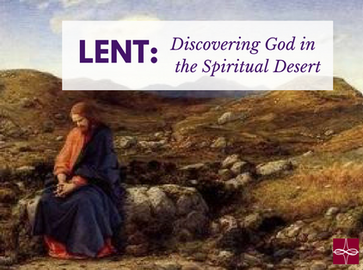



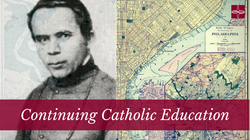

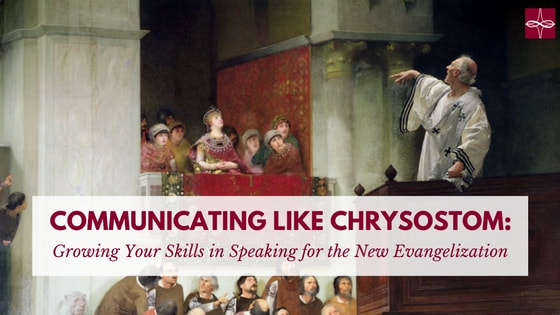

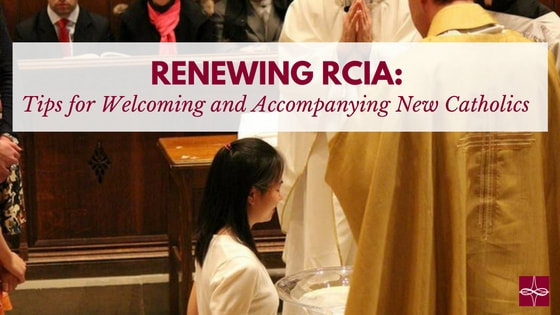



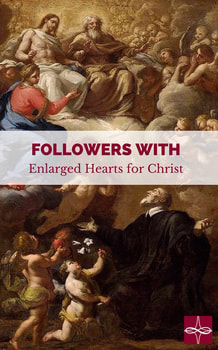


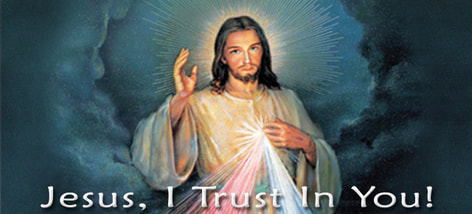












 RSS Feed
RSS Feed